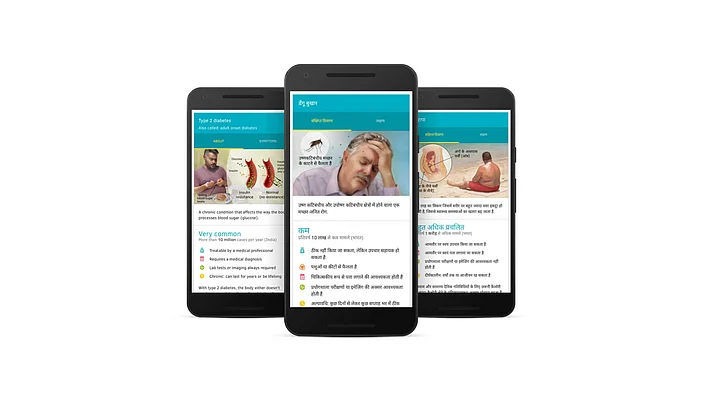Google announced that anyone in India searching for health information can now get it more quickly and easily with the launch of new health cards in the Knowledge Graph.
Google worked with Apollo Hospitals and Columbia Asia Hospitals to review the content, and the health information covers over 400 health conditions, including those common to India like malaria and dengue fever.
Now, when people ask Google about common health conditions, they can see information cards with typical symptoms, as well as details on how common the condition is, whether it’s critical, if it’s contagious, what ages it affects, and more.
India is the third country after the US and Brazil to have health information in the Knowledge Graph, and the content has been specifically designed for the Indian context.
The cards are available in Hindi and English, and cover common local conditions. As connectivity can sometimes be a challenge, Google will automatically load a “lighter” version of the cards when a slow connection is detected so people can get to the information they need, quickly.
Around the world, health conditions are among the most important things that people ask Google about. In fact, one in 20 searches are for health-related information, explained. We worked closely with a team of local and international doctors to curate and validate this information including Apollo Hospitals and the Columbia Asia Hospitals here in India. During product development, we also consulted the All India Institute of Medical Sciences and ASHAs who are community health workers to ensure the information on the cards is useful and accessible.Prem Ramaswami, Senior Product Manager at Google.
People will be able to see these new cards when they search for conditions with the Google app on Android or iOS phones and tablets, as well as mobile and desktop browsers. For some conditions, you’ll also see high quality illustrations from licensed medical illustrators.
The company says that these search results are not intended as medical advice, but for informational purposes only. People should always consult a medical professional if they have a health-related concern.
(At The Quint, we question everything. Play an active role in shaping our journalism by becoming a member today.)
